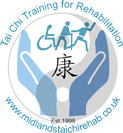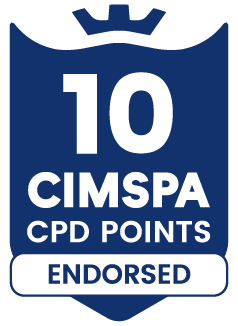Tai Chi and Qi Gong for Rehabilitation and Well-Being (8-day course)
This 8-day program is spread over the year into four 2-day modules to ensure quality of training and application
This email address is being protected from spambots. You need JavaScript enabled to view it.
Typical conditions the program will benefit include:
 Falls Prevention, to include: Arthritis, [Back] pain, non-specific/general pain, bones, sarcopenia, brain injuries (including stroke recovery), peripheral neuropathy.
Falls Prevention, to include: Arthritis, [Back] pain, non-specific/general pain, bones, sarcopenia, brain injuries (including stroke recovery), peripheral neuropathy.
Cardiovascular Rehabilitation to include: Heart, Pulmonary, circulatory system, asthma/respiratory system.
Days: 9.30an to 4.00pm
1st 2-day module
Day 1
- Introduction to Tai Chi plus research into Tai Chi for rehab
- Start to learn the Tai Chi short form*
- “Learn to fix yourself before you can help others” – understanding the importance of your own balance, stability and co-ordination.
- Learn seated qigong (Xiangong – fragrant Buddha qigong)
Day 2
- Understanding body mechanics and intrinsic strength through Tai Chi
- loosening exercise for improved circulation and mobility.
- tai chi qigong (shibashi 18 exercises)
- Tai Chi form practice*
- discuss example cases to give clear examples of Tai Chi usage
- Use of storytelling and anchors with patients to improve retention. (NLP/CBT)
2nd 2-day module
Day 1
- Review of sessions delivered since module 1
- Sitting and standing Qigong exercise (shibashi 2nd set of 18 movements)
- Relaxation – Mindfulness and guided imagery
- Work with key movements from Tai Chi to understand effect on breathing
- tai chi form practice*
Day 2
- Sitting and standing Qigong exercises continued
- Understanding the phobic response to patients condition and how to change it (NLP/CBT)
- Use of visualisations and music
- Tai Chi progressive exercises – 8 exercises for health
3rd 2-day review (after 3 months)
- review work to date - refinement
- case studies
- further Tai Chi movements* and Qigong (Fa Soong Gong)
4th 2-day review (after further 3 months)
- Further case reviews & review of improvements
- Use with client group and you’re workplace
- Finish tai chi form movements* and Tai Chi ball qigong (0.5kg and 1kg soft ball)
- effects on own life and habits
- assessment of training to date
*tai chi form taught is the first session (17 movements) of the Cheng Man Ching style of tai chi (Yang style). It is taught over the whole program. Movements are listed in the appendix. Hand-outs (including photos) and a DVD (or digital online access) will be supplied.
Overview
A holistic mind-and-body approach is applied. The program includes both seated and standing tai chi and qigong sets designed to improve mobility, balance and confidence. The sets are progressive and designed in a graded activity format. In addition to learning tai chi and qigong movement, the program covers history of tai chi, medical research, mindfulness, pain management, relaxation and motivation. The program is split into four blocks of 2-days over the year, which enables development and application to be more easily measured.
Outcomes
The aims and objectives of the program are to introduce patients/students to a progressive form of exercise for mind and body. The gentle nature of tai chi and qigong make it ideal for people who believe, or have been told, that they are not suitable for exercise as medical and anecdotal research has shown it to be highly effective. As the practice of tai chi and qigong is so enjoyable, it has been identified that people do more additional practice at home, when compared with other forms of rehabilitation. The overall aim is to encourage, those taking part, to continue exercising in the long term and thereby gaining the longer-term benefits of tai chi and qigong.
Who would benefit from attending?
Physiotherapist, Occupational Therapists, specialist activity professionals (e.g. cardiac rehab instructors), specialist nurses, tai chi instructors and personal trainers. Please note, if you feel you may be suitable but your profession has not been mentioned, do contact us to discuss.
Minimum entry requirements
- Professional qualification(s) in the occupation(s) mentioned above.
- Minimum level 2 group exercise instructor, Exercise to music (ETM) qualification, or similar.
- For details of the level 2 course, visit our coaching page
- For tai chi and/or qigong instructors, with no other relevant qualification, you may be asked to provide supportive evidence of your experience and understanding.
Delivery and assessment
The program is delivered with a mix of theory, discussion and practice. The experiential nature of the training means there is no final exam, as assessment is done on an ongoing basis, plus evidence of application and understanding at each module. The program is delivered in four blocks of 2-days over the year and those attending are expected to feedback, at each module, on their sessions.
Accreditation
This program is accredited by the Chartered Institute for the Management of Sport and Physical Activity () and awarded 10 development points (CPD) which is the maximum possible. It is in line with the new standard written to support people with long term-term conditions.

Can I register as a tai chi & qigong instructor?
Upon successful completion of this course, you may be eligible to apply for Instructor membership of the Tai Chi & Qigong Union for Great Britain
Please check the instructor member requirements to ensure you meet them before application.
What certification will I receive?
You will receive a certificate in “Teaching Tai Chi for Rehabilitation”. This is valid for one year. After which you will then need to attend a CPD day (usually £30-50), then every two years to maintain accreditation. Our programs are the only Tai Chi programs currently accredited by CIMSPA

Where and when is the course?
Training is held in Birmingham. Details and dates can be found on the homepage
To inquire and/or book, please complete and submit the form below or call Mark on 0121 251 6172
This email address is being protected from spambots. You need JavaScript enabled to view it.